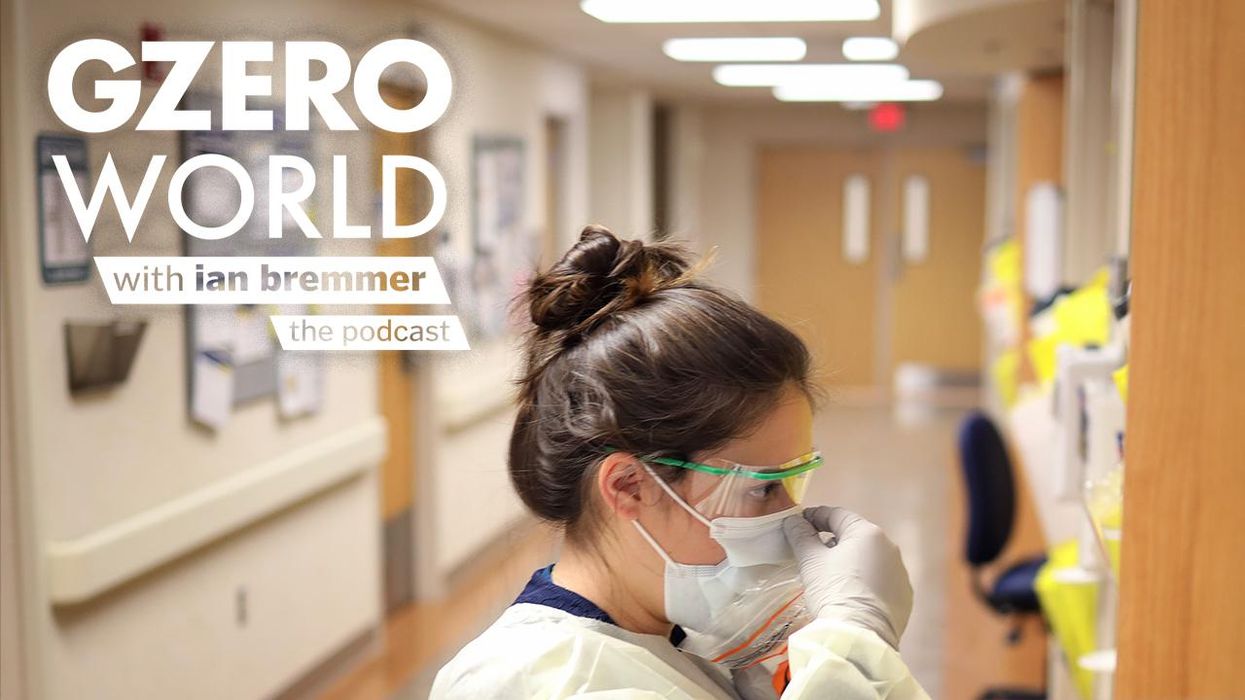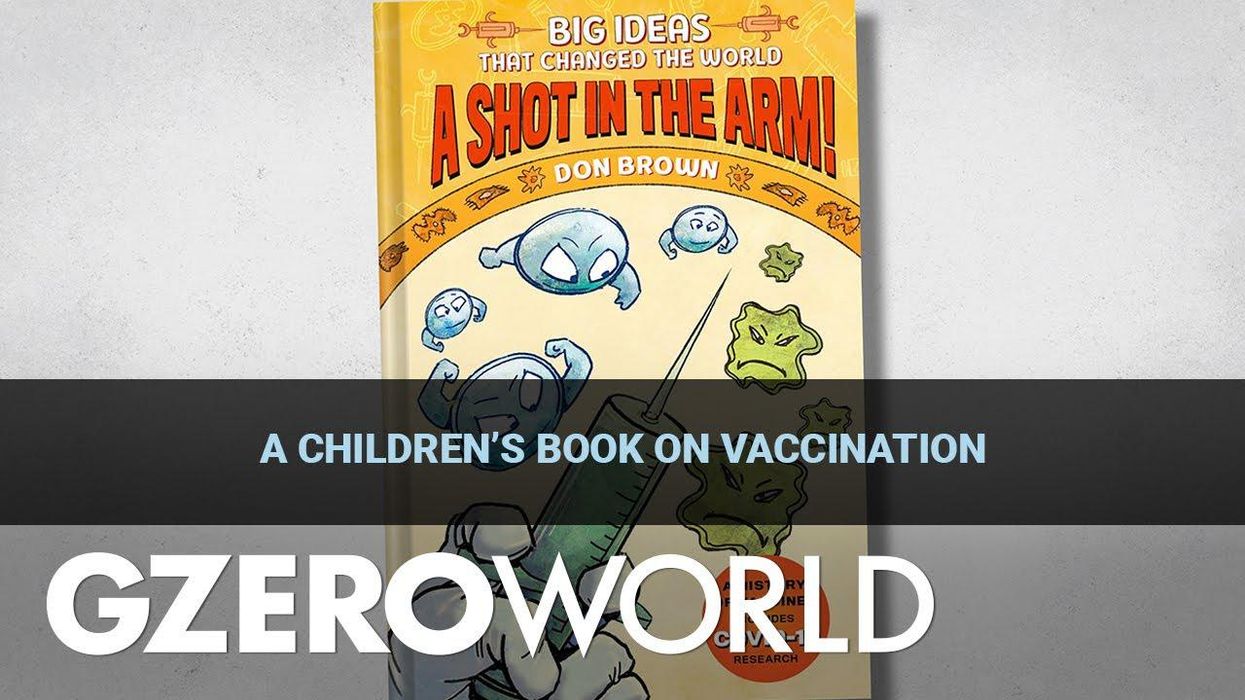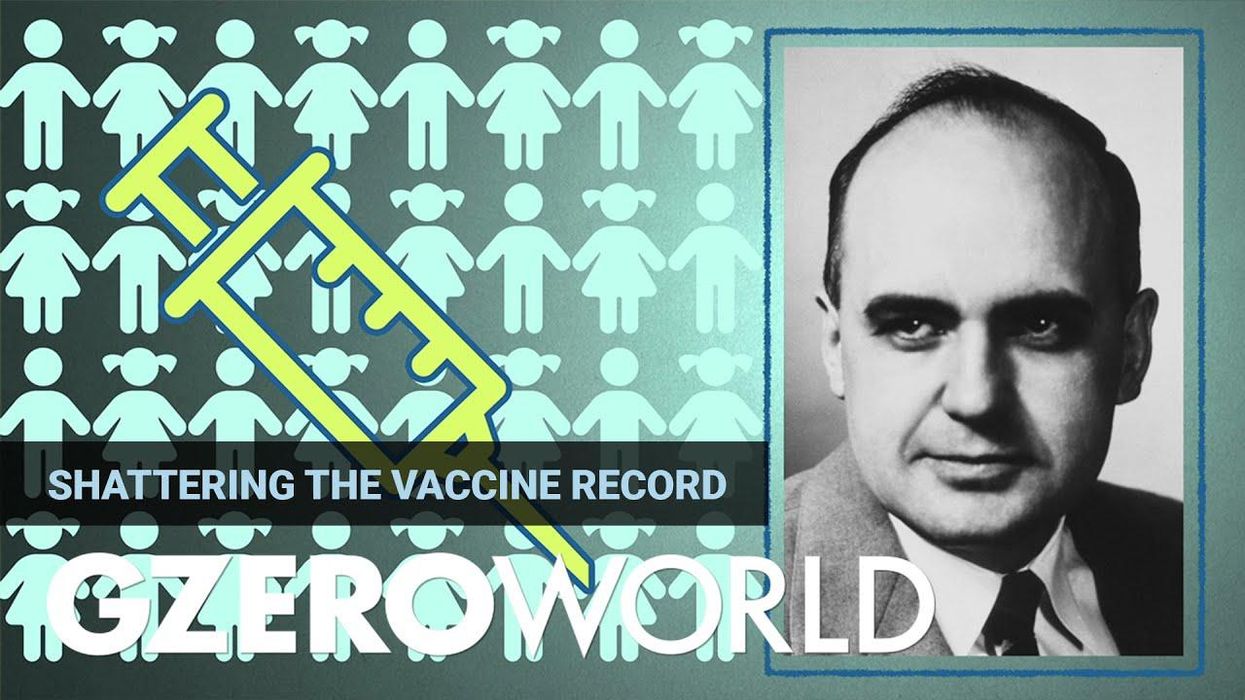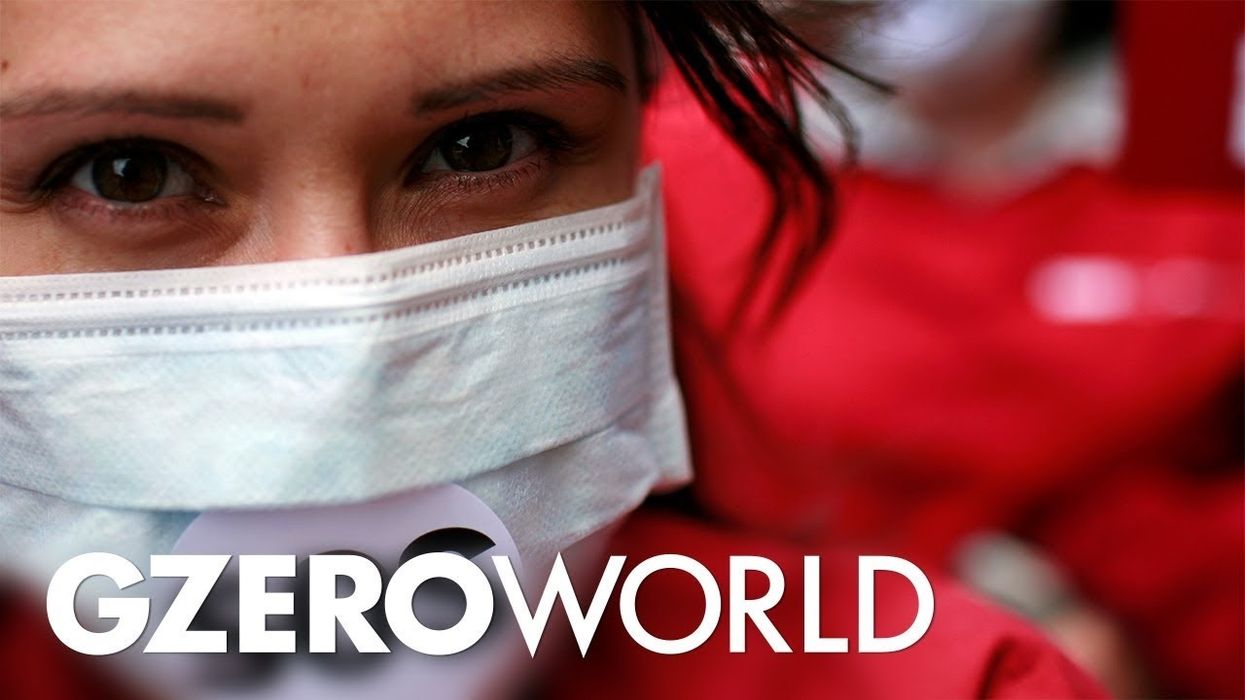GZERO World with Ian Bremmer Podcast
Podcast: How we overcome infectious disease with a public health renaissance
Listen: Former CDC chief Tom Frieden says he's stunned by how infectious COVID is compared to other diseases. The pandemic isn't over yet, he tells Ian Bremmer on the GZERO World podcast, thanks to long COVID plus the fact that we can't predict how the virus will play out in the future. Frieden's advice for everyone is to get vaxxed and boosted, to "keep yourself out of the hospital and, quite frankly, out of the morgue," since new variants could emerge, making the virus more deadly.
Jun 25, 2022





